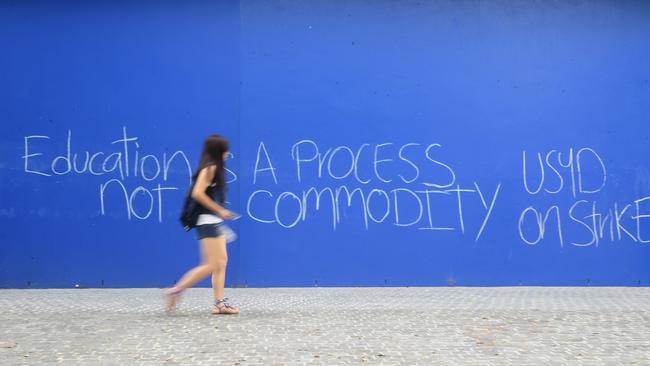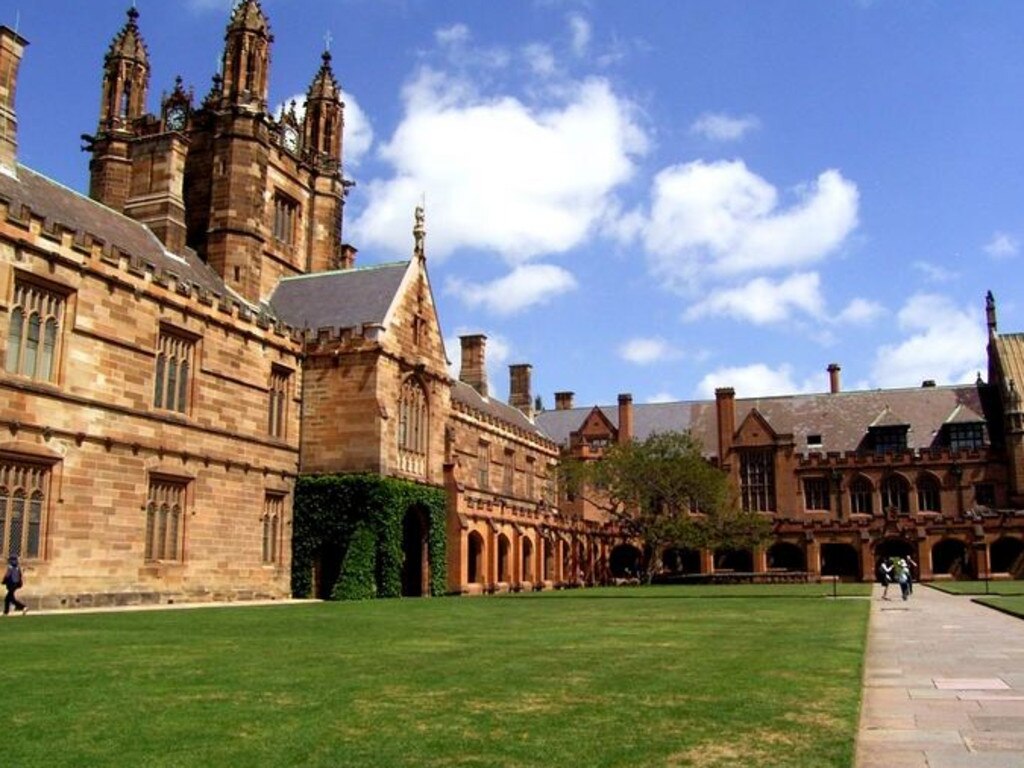Bonfire of humanities will burn our education system to ash
The crass cancel culture sweeping the nation has risen like a demon from the flames of historical and literary ignorance.

Well, naturally, neither I nor any of my brilliant fellow undergrads had a clue, and most of us hadn’t done the reading, so O’Farrell answered his own question. With characteristic vehemence, he stated with great authority something I have never forgotten: “Because if there are no historians our history will be told by self-aggrandising charlatans, the social engineers, amateur psychologists, and, worse, journalists!” How right he was.
When I see the chicanery and hear the empty right-think that surrounds us, and the triumph of ideologies that scream “victim” the loudest, I am doubly sure he was right. Unfortunately, it was at that point in our history that many historians had started to abandon the business of history and started on the ideological long march, through the universities, the institutions that had nurtured them.
Some, such as Geoffrey Blainey, would not succumb to right-think, and though many of us could not agree with some of his views on multiculturalism, the aggressive mob’s disrespect for a historian whose work has helped shape our national story was a shocking portent of the future, now with us in “cancel culture”. Where did the foot soldiers of cancel culture come from? A lot of them came from universities, including prestigious institutions, which were no longer concentrating on scholarship but on ideology. History departments were hot on the evils of neo-colonialism but abandoned the classics.
Now, almost no history graduate has heard of Thucydides but everyone knows about Foucault. So perhaps it is no wonder arts faculties are now under attack.
However, the latest furore over funding for university arts courses is the result of a policy that is as wrong as cancel culture itself. As many correspondents have pointed out in The Australian this week, the humanities are the foundation of a university.
Dawkinisation didn’t do much for our system and technical education, but some former colleges of advanced education have produced useful graduates with a high level of practical skills. Nor are arts graduates lacking employment. I have produced nine of them — two in the seemingly esoteric field of art history — all with good jobs, or self-employed.
However, it is self-evident that something is wrong because the quality of degrees is too variable, and study in serious disciplines in arts degrees such as history has been neglected. The remedy will not be found in a shortsighted policy that charges humanities students more. The solution must address the deeper malaise in our education system, which begins at the beginning, not at university.
I taught in various NSW high schools and ended up teaching more English than history because history disappeared as a compulsory subject along with the principle that certain subjects must be done by everyone to a basic level to have a proper foundational education.
Even teaching English became difficult because kids knew no grammar and could not write a sentence. Trying to teach grammar resulted in being hauled before the head of department for re-education. The often heard complaint the curriculum is too crowded is just a polite way of saying there is too much film-flam and not enough basic subjects. After Year 10, many students do useless stuff such as social education but need to attend remedial English at university.
If students coming from school do not read widely or express themselves properly in their own language, let alone know the story of colonial Australia, the foundation principles of Australian education are obviously at fault. A national curriculum is a fine objective, but state education departments need a co-ordinated root and branch overhaul of school education.
Fiddling around the edges at the university level is too late. Unfortunately, Australians are hamstrung by our laudable national preoccupation with fairness and egalitarianism. Our egalitarian culture scorns all forms of elitism, but universities are meant for an intellectual elite, and they need to be cultivated before they get to university because true egalitarianism means that all those capable will have the chance.
There has been a worthwhile campaign to change the direction of reading education, but true literacy isn’t just about the basics.
Tightening the primary and high school curriculum and focusing on more academic study — to do history instead of, say, life issues — is hardly going to turn us into another Germany, where clever students bound for high school gymnasia are streamed by age 11, nor will mandating that everyone does maths make us like Singapore.
We are a different culture and we have a tradition of creativity in the school curriculum that is alien to many other high-flying education systems, but we need to review the curriculum entirely, otherwise more of our university graduates incapable of reading classical literature, let alone studying philosophy or history, will end up fooled by those “self-aggrandising charlatans, the social engineers, amateur psychologists and, worse, journalists!”.






The year was 1974. The place was the office of history professor Patrick O’Farrell, doyen of Australian Irish and Catholic history, and I was 19 and terrified. It was the first seminar in historiography, the study of the theory of history, and a compulsory subject for honours candidates. O’Farrell had just demanded an answer to the question “Why do we need historians?”.